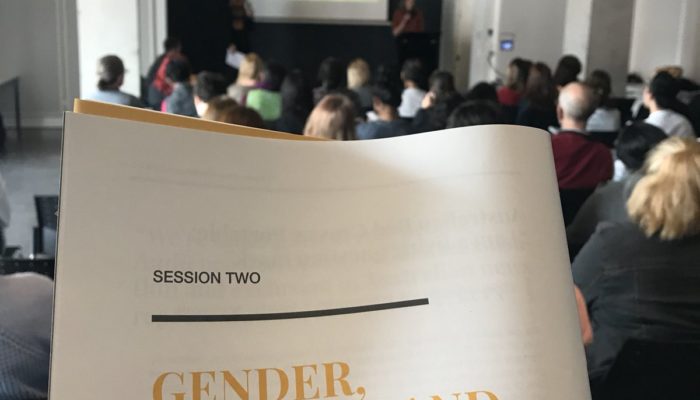The 2018 RAS Interdisciplinary Conference: A Review
The annual Researchers for Asylum Seekers Interdisciplinary Conference took place at the University of Melbourne in November, 2018. The conference showcased current research on issues facing refugees and asylum seekers and included topics ranging from transnational activism to theatre and from mental health to reflections on ethnographic practice.
Prof. Nick Haslam opened the conference with news that Researchers for Asylum Seekers would be winding down. RAS was a voluntary group of academics at The University of Melbourne who were concerned about the inhumane and often unfair treatment of people seeking asylum in Australia. Over the past 15 years RAS has aimed to influence national policy to ensure equity, justice and human rights for all refugees and people seeking asylum. RAS worked to establish dialogue with advocates, practitioners and academics to develop just and evidence-based policy initiatives, contribute to research-based knowledge that could be used to lobby the government to change harmful policies and practices, and to nurture the development of new and established researchers on refugee issues. The legacy of RAS will live on as the Melbourne Social Equity Institute continues to host the annual interdisciplinary conference and the RAS research blog takes on a new and independent identity as Refugee Research Online.
In their keynote address Diana Johns and Nakier Chol reflected on a recent report produced in collaboration between Monash University, The University of Melbourne and the Centre for Multicultural Youth. The report, Don’t Drag Me Into This: Growing up South Sudanese in Victoria after the Moomba 2016 ‘Riot’, brings to light the experiences of South Sudanese young people in the face of demonising media and political narratives about so-called ‘African gangs’. The presentation was deeply personal and deeply moving and not only highlighted the media’s role in perpetuating myths about racialised crime, but also how such myths begin to shape everyday encounters for South Sudanese young people, both institutionally and relationally. Johns and Chol’s presentation set the standard for what was to come: a series of talks, interviews and presentations that not only took aim at the dominant negative stereotypes surrounding people seeking asylum and refugees, but also offered ways into creating a better world in the face of systematic injustice.
It’s the unfortunate nature of reviews like this to not be able to include comments and reflections on all the excellent work that was shared at the RAS Interdisciplinary Conference. One personal highlight was Anh Nguyen’s presentation “Game Change: Engaging Refugees in #digital_diaspora” which looked at the ways in which digital media has allowed refugees to build on-line archives, create networks and connect up others in real-time. Nguyen has used this research to establish a game design education program for teachers and students that allows students to create video and board games based on oral histories that highlight the complex choices that ordinary people make in becoming refugees. The range of work presented in the conference spanned from reflections on recently completed research projects, such as Ashleigh Law’s insightful talk on how Australian media audiences conceptualise and evaluate news representations of asylum seekers, to speculations on research projects that are still taking shape, such as Hala Nasr’s discussion on how the use of safe spaces in refugee settings must develop to meet the needs and aspirations of refugee women.
From the second week of January, 2019 onward, Refugee Research Online will be posting the conference abstracts from all the presentations given at the 2018 RAS Interdisciplinary Conference. It’s an opportunity to check out some of the most current research on issues facing asylum seekers and refugees while also documenting a fascinating, passionate and thoughtful conference.
1 Response
Leave a Reply
You must be logged in to post a comment.

Pingback : Regional Focus: Australia – AnAttorney.com